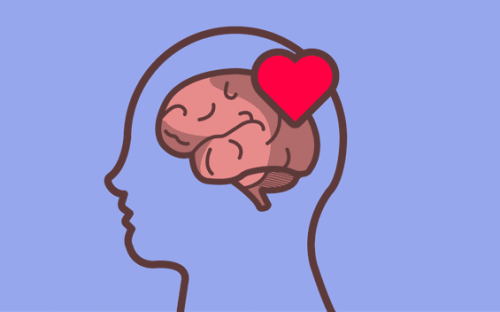Emotional Education - Should Schools Teach It?


Written and verified by the psychologist Fátima Servián Franco
Emotional education is a response to social needs that aren’t sufficiently addressed in ordinary academic plans. There’s a presence of anxiety, stress, depression, violence, drug use, suicide, and risky behaviors among them. All of it is largely a consequence of emotional illiteracy.
In addition, as per its name, emotional education aims to develop emotional skills. Emotional competencies are the set of knowledge, capacities, abilities, and attitudes necessary to become aware, understand, express, and appropriately regulate emotional phenomena. Some emotional competencies are awareness and regulation, autonomy, social competencies, life skills, and well-being.
Schools don’t teach what children should learn the most
Therefore, the development of emotional competencies requires continuous practice. It’s because emotional education begins in the first moments of your life and must continue throughout your entire life.
Thus, it should be a part of the infant, primary, secondary, family, and adult education systems, as well as taught via the socio-community media and organizations dedicated to older people, among others. (Bisquerra, 2011).

Is it necessary to include emotional education in schools?
Daniel Goleman, psychologist, author of the book Emotional Intelligence (1995), and co-founder of CASEL (Collaborative for Academic, Social, and Emotional Learning) is one of the most authoritative voices when it comes to this subject. He states that people must learn to control their emotions. Specifically, the really stressful and disabling emotions.
This is because most people are constantly stepping on the emotional world, although many times they’re not able to identify the type of ground they’re stepping on. Thus, everything you learn is conditioned by your emotional state.
You live with emotions from the moment you’re born. In fact, they play a relevant role in the construction of your personality and social interaction. In addition, you experience emotions in any space and time, with family and friends and with your environment. Also, with your peers and school, educators, among others.
In addition, school is another area of knowledge and experience in which emotions develop. In fact, educating means contemplating the integral development of people when it comes to their cognitive, physical, linguistic, moral, affective, and emotional abilities (Cassà, 2005).
The contents of emotional education schools could add to their curriculums
- Firstly, emotional awareness. It involves becoming aware of one’s emotional state and manifesting it through verbal and/or non-verbal language, as well as recognizing the feelings and emotions of others.
- Secondly, emotional regulation. This is the ability to regulate unpleasant impulses and emotions, tolerate frustration, and know how to expect gratifications.

Emotional education for well-being
Well-being has a personal and social dimension. Thus, it’s a reality, and working with it will allow you to transcend the myopic perspective of individual well-being. All to orient yourself towards the integral development of people within their respective organizations. The goal is social well-being in interaction with personal well-being (Bisquerra, 2011).
Recent research provided enough evidence of the positive effects of emotional education. The general conclusion is that the systematic development of these kinds of programs that meet minimum conditions of quality and time of dedication have an important impact on people’s integral development.
Keep in mind that emotional skills are among the most difficult to acquire. A normal student can learn to solve second-degree equation problems. However, years of training are required to automate the regulation of impulsivity in anger situations (and to prevent violence). This is one of the challenges of emotional education. Thus, dedicate the necessary space to it.
In the current state of knowledge, a good space could be configured by weekly sessions of 45-60 minutes throughout the course, over several years (Bisquerra, 2011).
Emotional education is a response to social needs that aren’t sufficiently addressed in ordinary academic plans. There’s a presence of anxiety, stress, depression, violence, drug use, suicide, and risky behaviors among them. All of it is largely a consequence of emotional illiteracy.
In addition, as per its name, emotional education aims to develop emotional skills. Emotional competencies are the set of knowledge, capacities, abilities, and attitudes necessary to become aware, understand, express, and appropriately regulate emotional phenomena. Some emotional competencies are awareness and regulation, autonomy, social competencies, life skills, and well-being.
Schools don’t teach what children should learn the most
Therefore, the development of emotional competencies requires continuous practice. It’s because emotional education begins in the first moments of your life and must continue throughout your entire life.
Thus, it should be a part of the infant, primary, secondary, family, and adult education systems, as well as taught via the socio-community media and organizations dedicated to older people, among others. (Bisquerra, 2011).

Is it necessary to include emotional education in schools?
Daniel Goleman, psychologist, author of the book Emotional Intelligence (1995), and co-founder of CASEL (Collaborative for Academic, Social, and Emotional Learning) is one of the most authoritative voices when it comes to this subject. He states that people must learn to control their emotions. Specifically, the really stressful and disabling emotions.
This is because most people are constantly stepping on the emotional world, although many times they’re not able to identify the type of ground they’re stepping on. Thus, everything you learn is conditioned by your emotional state.
You live with emotions from the moment you’re born. In fact, they play a relevant role in the construction of your personality and social interaction. In addition, you experience emotions in any space and time, with family and friends and with your environment. Also, with your peers and school, educators, among others.
In addition, school is another area of knowledge and experience in which emotions develop. In fact, educating means contemplating the integral development of people when it comes to their cognitive, physical, linguistic, moral, affective, and emotional abilities (Cassà, 2005).
The contents of emotional education schools could add to their curriculums
- Firstly, emotional awareness. It involves becoming aware of one’s emotional state and manifesting it through verbal and/or non-verbal language, as well as recognizing the feelings and emotions of others.
- Secondly, emotional regulation. This is the ability to regulate unpleasant impulses and emotions, tolerate frustration, and know how to expect gratifications.

Emotional education for well-being
Well-being has a personal and social dimension. Thus, it’s a reality, and working with it will allow you to transcend the myopic perspective of individual well-being. All to orient yourself towards the integral development of people within their respective organizations. The goal is social well-being in interaction with personal well-being (Bisquerra, 2011).
Recent research provided enough evidence of the positive effects of emotional education. The general conclusion is that the systematic development of these kinds of programs that meet minimum conditions of quality and time of dedication have an important impact on people’s integral development.
Keep in mind that emotional skills are among the most difficult to acquire. A normal student can learn to solve second-degree equation problems. However, years of training are required to automate the regulation of impulsivity in anger situations (and to prevent violence). This is one of the challenges of emotional education. Thus, dedicate the necessary space to it.
In the current state of knowledge, a good space could be configured by weekly sessions of 45-60 minutes throughout the course, over several years (Bisquerra, 2011).
All cited sources were thoroughly reviewed by our team to ensure their quality, reliability, currency, and validity. The bibliography of this article was considered reliable and of academic or scientific accuracy.
Bisquerra, R. (2011). Educación emocional. Propuestas para educadores y familias. Bilbao: Desclée de Brower.
Cassà, È. L. (2005). La educación emocional en la educación infantil. Revista interuniversitaria de Formación del Profesorado, 19(3), 153-167.
This text is provided for informational purposes only and does not replace consultation with a professional. If in doubt, consult your specialist.







